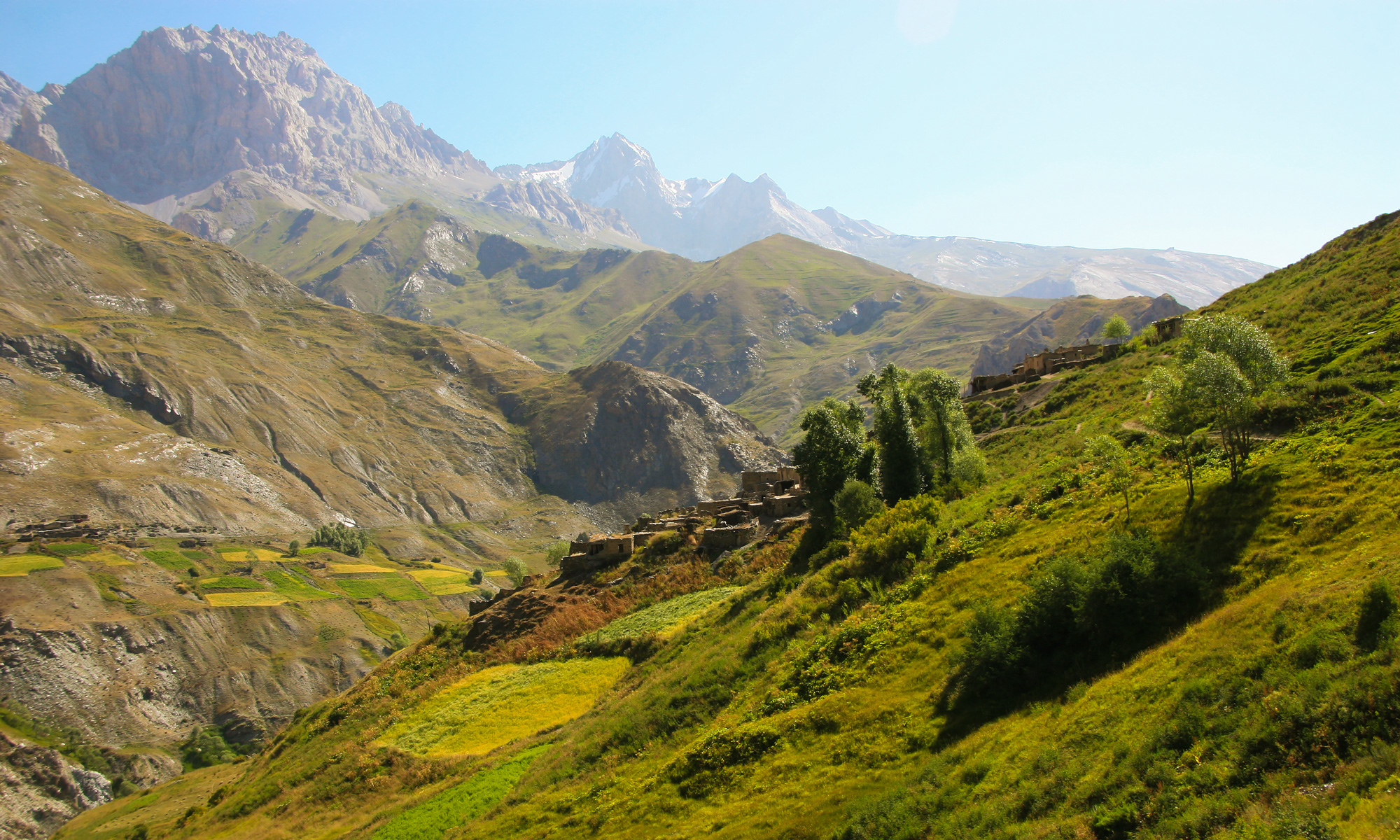In the Yaghnob Valley, grief rarely roared. It whispered.
To mourn was not only to weep—it was to choose your words with care, or to withhold them entirely. Silence shaped syntax. Grammar became ritual. And in a culture rooted in respect, endurance, and oral inheritance, what was left unsaid after death often carried as much meaning as what was spoken aloud.
There are no dramatic cries in the records. No theatrical lament. Instead: euphemisms, softened phrasing, quiet omission—a linguistic tenderness that protects both the speaker and the spirit of the departed.
In the syntax and lexical archives, we see consistent patterns of avoiding direct mention of death. Instead of using the word мурд (murd, “died”), speakers turn to gentler verbs:
-
рафт (raft) – he/she went
-
гум шуд (gum shud) – disappeared, was lost
-
хомӯш шуд (khomūsh shud) – became silent
So rather than say “Mother died,” one would say:
Модар рафт.
Mother has gone.
This phrasing softens the finality. It implies movement, not disappearance—as if the person has simply walked ahead, still part of the landscape, just out of view. It echoes broader Central Asian oral traditions, where death is not a stop, but a passage.
In Khromov’s narratives, references to death are often marked by silence, not declaration. One excerpt reads:
Он ҷо дигар касе набуд. Аз он пас, хомӯшӣ омад.
There was no one there anymore. After that, silence came.
Here, silence becomes the marker of absence. No death is named. Yet grief is unmistakable. In such cases, mourning isn’t just emotional—it’s grammatical. The syntax shifts. The subject disappears. A hush enters the sentence and stays.
There’s also a protective layer at work. In traditional belief, naming the dead too soon—or too often—might disturb their rest or confuse the road between worlds. Speech becomes a kind of respectful boundary.
One fragment from an oral interview describes a widow’s ritual:
“I did not say his name for a year. Then I called him to the bread again.”
The practice of withholding a name is not forgetting. It’s honoring a threshold. Children may grow up not hearing a lost relative’s name until the time is right—often marked by ritual, remembrance, or shared meals.
To name again is not to break silence. It is to return to it with reverence.
Across the region, speakers use phrases that mark the dead with gentleness, not detachment:
-
Фарзанди хобрафта (farzandi khob-rafta) – “the child who has gone to sleep”
-
Одами зери хок (odami zeri khok) – “the person beneath the soil”
-
Номи ӯ набояд бурд (nomi ū naboyad burd) – “his name should not be carried/spoken”
These are not only poetic. They’re practical, too. In tight-knit village life, where memory is a shared inheritance, speech has weight. To speak carelessly is to reopen wounds.
So language becomes a kind of shield, a way of protecting the living from too much pain—and the dead from being disturbed.
Few theological details survive in the linguistic record, but the verbs chosen around death are telling. They imply transformation, not termination:
-
шуд (shud) – became
-
рафт (raft) – went
-
гум шуд (gum shud) – was lost
-
осуда шуд (osūda shud) – became at peace
These verbs offer an afterlife not through dogma, but through grammar. Even syntax participates in the ritual of mourning.
To speak around the dead—to use euphemism, or silence—is not a gap in culture. It is a form of deep cultural literacy. A way of remembering without overwhelming. Of honoring without claiming.
In a region marked by displacement, poverty, and interrupted family lines, this linguistic restraint becomes an act of endurance.
As one elder quietly put it:
“We do not say the names loudly.
They are in the walls.”
